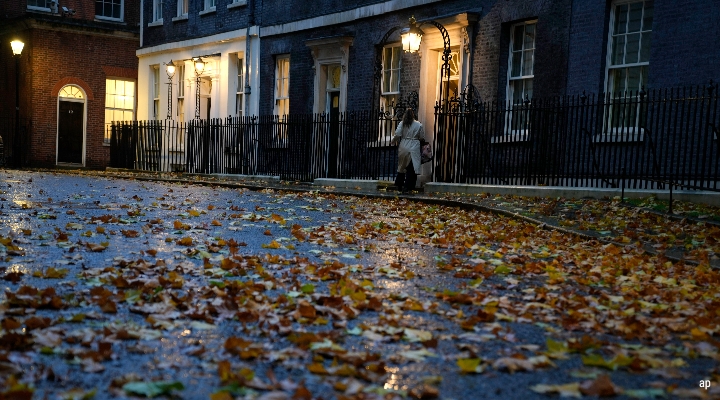State Pension Age Review Due Early 2023
Long-awaited announcement on changes to the state pension age will be made early next year, chancellor confirms

Pension news came late in Jeremy Hunt’s autumn statement today but it was no less significant. A bundle of measures was announced, including keeping the triple lock and some clarity on when we're expected to hear about changes to the state pension age.
But there were some significant omissions too, with pension tax relief left alone and no changes to the lifetime allowance, both ideas repeatedly (some would say ritualistically) floated in the media ahead of today’s announcements.
While workers expect the state pension age of 66 to rise by the time they come to retire, details are more vague for those with a longer retirement horizon.
A government review of the state pension age is ongoing from December 2021 and the chancellor confirmed today its findings will be published in early 2023. It follows an earlier review by John Cridland.
"The Review will need to carefully balance important factors, including fiscal sustainability, the economic context, the latest life expectancy data and fairness both to pensioners and taxpayers," the Treasury statement said today.
The state pension age is currently 66. Two more increases are already due: a gradual rise to 67 for those born on or after April 1960 and an increase to 68 between 2044 and 2046 for those born on or after April 1977. The government is legally required to review the pension age regularly.
For current pensioners, Liz Truss as prime minister had committed to maintaining the "triple lock", a pledge by the government to increase the state pension by either average earnings, 2.5% or by inflation – whichever is higher.
The triple lock was less controversial in a low inflation era, but when the cost of living is rising more than 10% a year, this becomes an issue. Pensioners need incomes to keep up with price rises, but this commitment costs the government a lot more money, to the tune of £10 billion. It will now push the average state pension above £10,000 for the first time.
Pension LTA Still Frozen
Gary Smith, financial planning director at wealth manager Evelyn Partners says:
"Even wealthier savers should not underestimate the value of the state pension, and therefore the importance of it keeping pace with inflation – for all demographics, including younger workers, as they will one day hopefully benefit from the current maintenance of state pension levels."
The pension lifetime allowance or LTA, meanwhile, remains at £1,073,100 and will do so until at least the 2025/2026 tax year. This could have been extended until 2028 in today's statement but could also be covered in the spring 2023 Budget.
Ten years ago the allowance was £1.8 million. While this figure may seem the preserve of the wealthy, more people are being caught in its tax perimeter, and it’s long been influencing the retirement plans of doctors and surgeons, whose withdrawal from the NHS workforce has posed problems on the frontline of healthcare.
"Fiscal drag" is at work here too. The continued freeze on the lifetime allowance "is a stealth tax on savers with more people set to breach it" says Jason Hollands, managing director of Bestinvest.
For those at the opposite end of the wealth ladder, the "minimum income guarantee" part of pension credit – which applies to pensioners on a low income – will also be uprated by inflation. This is designed to top up the incomes of poorer pensioners. Pensioner households will also receive an extra £300 cost of living payment.





